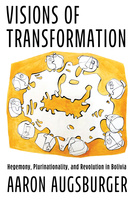Warfare and the Dynamics of Political Control
Warfare and the Dynamics of Political Control explores how warfare shapes the establishment, maintenance, and collapse of political institutions across diverse societies and historical periods. The chapters cover a wide range of topics and time periods to bring into focus the material and ideological drivers of conflict, offering deep insights into the complex interplay between violence and political power.
Au Te Waate / We Remember It
Hiaki Survival Through a Bitter War
Au Te Waate / We Remember It offers the personal narratives of Hiaki (Yaqui) individuals who endured the tumultuous period from 1900 to 1930, when they faced systematic attacks, conscription, deportation, and enslavement under Mexican government policies. Presented in both the original Hiaki language and English translation, these accounts offer an unparalleled glimpse into the lives of those who resisted and survived the era’s harsh realities, completely from the Hiaki perspective.
Mapping Neshnabé Futurity
Celestial Currents of Sovereignty in Potawatomi Skies, Lands, and Waters
Mapping Neshnabé Futurity is an essential read that offers a rethinking of how we conceive of futurity and sovereignty. Morseau’s interdisciplinary approach, blending anthropological research with literary critique, shows how counter-mapping projects both on the ground and in the skies reclaim space in the Great Lakes region—Neshnabé homelands—and are part of Anishinaabé/Neshnabé communities’ constellations of Indigenous futurities and stories of survivance.
Betrayal U
The Politics of Belonging in Higher Education
Betrayal U: The Politics of Belonging in Higher Education is a timely and incisive anthology edited by Rebecca G. Martínez and Monica J. Casper. This groundbreaking volume dives into the heart of institutional betrayal within academia, offering a diverse range of narratives, art, and poetry that address why belonging matters in higher education.
Visions of Transformation
Hegemony, Plurinationality, and Revolution in Bolivia
Visions of Transformation provides an analytical framework through which to interpret and understand the process of social change in Bolivia during the era of Evo Morales.
Rainforest Radio
Language Reclamation and Community Media in the Ecuadorian Amazon
Rainforest Radio follows Napo Kichwa media producers, performers, and consumers across a disrupted Amazon rainforest to understand the effects of different methods and media in language reclamation projects.
Reframing Paquimé
Community Formation in Northwest Chihuahua
Based on twenty-five years of survey and excavation work in the Casas Grandes region, this book presents an interpretation of Paquimé that differs greatly from the traditional ideas that have dominated the literature for the last half-century. This massive reinterpretation of the inner workings of the Casas Grandes region tackles the essential question of how Paquimé affected its near neighbors and also addresses the enigmatic end to the great city. An essential archaeological text, Reframing Paquimé will generate debate for a generation of future scholars of Northwest Mexico and the adjacent U.S. Southwest.
Net Values
Environmental, Economic, and Social Entanglements in the Gulf of California
In Net Values, Nicole D. Peterson provides new perspectives around fishing, conservation, and community well-being effectively. The book uses narratives and examples to challenge the current approaches toward rational individual choices and offers suggestions about better directions for understanding choice in real-world contexts.
Empowering Latina Narratives
Navigating the Education/Educación Conflict in the Third Space
In this groundbreaking book, author Margaret Cantú-Sánchez examines the nuanced experiences of Latinas/Chicanas within the U.S. educational system. Cantú-Sánchez introduces the concept of the education/educación conflict, where Latinas navigate the clash between home and school epistemologies under Anglocentric, assimilationist pedagogies.
Publishing Latinidad
Latinx Literary and Intellectual Production, 1880–1960
Publishing Latinidad argues that late nineteenth- and early twentieth-century Latinx authors and intellectuals engaged with alternative print cultures and literary genres to theorize about their racial and ethnic identities in relation to other nonwhite groups in the United States.
México Between Feast and Famine
Food, Corporate Power, and Inequality
As debates around food sovereignty, globalization, and sustainable development intensify globally, México Between Feast and Famine provides timely analysis that counters conventional narratives about Mexican cuisine. Historian Enrique C. Ochoa examines the rise of Mexico’s corporate food system, contextualized by the long history of colonialism. Ochoa also looks to the future, offering a vision of more equitable and sustainable food systems that prioritize social justice and community well-being.
Walled
Barriers, Migration, and Resistance in the U.S.-Mexico Borderlands
Thirty years after the first mile of border walls was constructed in the San Diego–Tijuana region, this volume invites readers to reflect on how the border has evolved and what durable impacts came from these initial fourteen miles of border walls—and the 1,940 miles constructed since.
The Rise of Necro/Narco Citizenship
Belonging and Dying in the Southwest North American Region
The Rise of Necro/Narco Citizenship offers a comprehensive exploration of the sociopolitical, economic, and cultural forces shaping the Southwest North American Region. Written by Carlos G. Vélez-Ibáñez, this work introduces the innovative concept of necro/narco citizenship, shedding light on how violence, militarization, and socioeconomic disruptions create unique forms of existence and identity on both sides of the U.S.-Mexico border.
Gardening at the Margins
Convivial Labor, Community, and Resistance
This book explores how a group of home gardeners grow food in the Santa Clara Valley to transform their social relationships, heal from past traumas, and improve their health, communities, and environments.
Specters of War
The Battle of Mourning in Postconflict Central America
Specters of War explores mourning practices in postwar Central America, particularly in El Salvador and Guatemala. Sarmiento delves into the intricate dynamics of grieving through an interdisciplinary lens, analyzing expressions of mourning in literature, theater, and sites of memory. At the heart of this analysis is the contention over who has the right to mourn, how mourning is performed, and who is included in this process. Mourning is a battleground where different societal factions vie for the possibility of grieving the dead.















